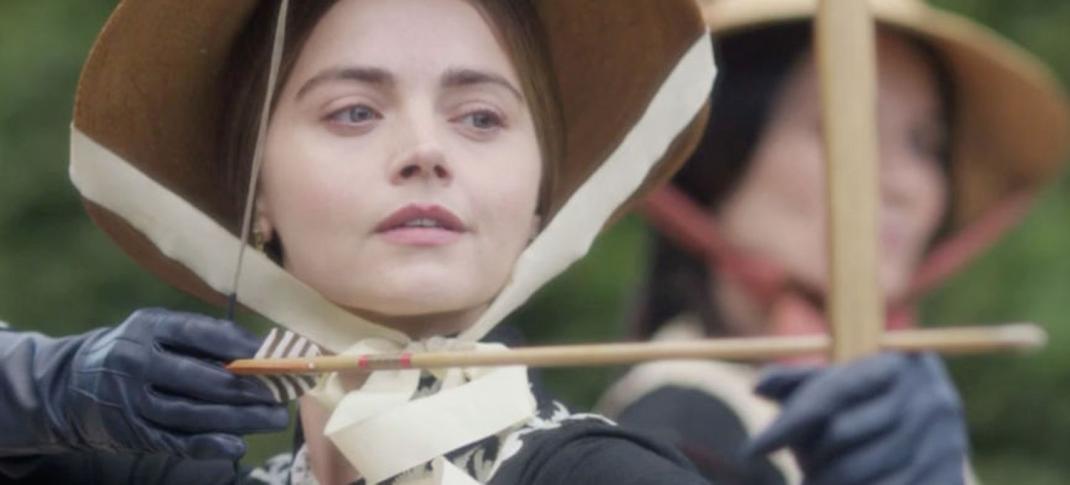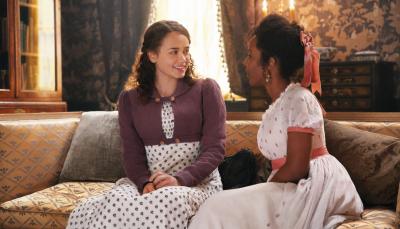Know Your 'Victoria' History: "A Public Inconvenience"

Think you know the history of Queen Victoria's reign? Wondering how much of the story portrayed by PBS series Victoria is accurate?
We take a look at the truth behind the drama in the seventh episode of Season 3, "A Public Inconvenience."
What was the Great Exhibition of 1851?
Finally! Victoria has allowed the action of the show to officially move into the 1850s, after playing footsie with events that happened in the next decade while still trying to insist it's 1848. Welcome to one of Albert's greatest triumphs, The Great Exhibition of 1851, the forerunner of what became the World's Fairs of the 20th century. The show does everyone a favor by being surprisingly accurate about all of this. Albert was the driving force behind the event, along with Henry Cole. The two of them imagined and then created the structure known today as "The Crystal Palace" in Hyde Park. The exhibits included all of the marvels of the modern age at the time, including (but not limited to!) "pottery, porcelain, ironwork, furniture, perfumes, pianos, firearms, fabrics, steam hammers, hydraulic presses and even the odd house or two."
However, my favorite part about this section is that the show is honest about the toll this project took on Albert. Yes, the event was a masterpiece and a highlight of the decade. But, it should be noted, Victoria really did worry about how much work Albert put into it. The show may not have said "Don't You Think He Looks Tired?" at any point during this hour, but viewers who came away with this impression are correct. This exhibition marked the beginning of Albert's long slide into ill-health that would end with his death a mere ten years into the future.
Was The Victoria Amazonica Real?
Tied up in the story of the Great Exhibition is the mention of the Victoria amazonica lily. Initially called the Victoria regia, the first sample arrived in London from Guyana back in 1837, right around the time she took the throne. (It was renamed amazonica after her death in 1901.) You've probably seen a picture or two of these things, water lilies the size of an elephant's boutonnière, and lilypads which look like a human could use one for boating.
By the time the Great Exhibition rolled around, the flowers were all the rage in the gardens of high born nobles, who grew them as a way to compete for the Queen's attention, including such noble Dukes as Northumberland and Devonshire. Cole's design was merely the next step in flattery, as well as a genius concept.

What Was The Don Pacifico Affair?
Meanwhile, in Parliament! It is also 1850, a rare Victoria episode where all the different dramas did happen in the same period. If it's 1850, then it's time for Lord Palmerston, in his role as Foreign Secretary, to nearly start a war with Greece over an incident known as the Don Pacifico Affair.
David Pacifico was a Portuguese Jew who was technically a British subject for having been born on Gibraltar. He had spent most of his life as a consul, first in Portugal and then in Greece, before finally retiring to become a merchant in Athens in the late 1830s. And one day in 1847, a bunch on anti-Semites decided to burn his house down.
Pacifico demanded compensation from the Grecian government since the police had stood by and done nothing. When he didn't get satisfaction, he appealed to Parliament, whereupon Palmerston sent a naval blockade. This action kicked up a fuss from both French and Russian corners, as all three countries considered themselves to be sharing the islands under a tri-protectorate, as it were. As the series shows, many in the House of Lords felt Palmerston went too far, and they moved to censure him. Palmerston came out on top though with his famous speech which claimed that, just as a Roman could say “Civis Romanus sum” (“I am a Roman citizen”), “so also a British subject, in whatever land he may be, shall feel confident that the watchful eye and the strong arm of England will protect him against injustice and wrong.”




